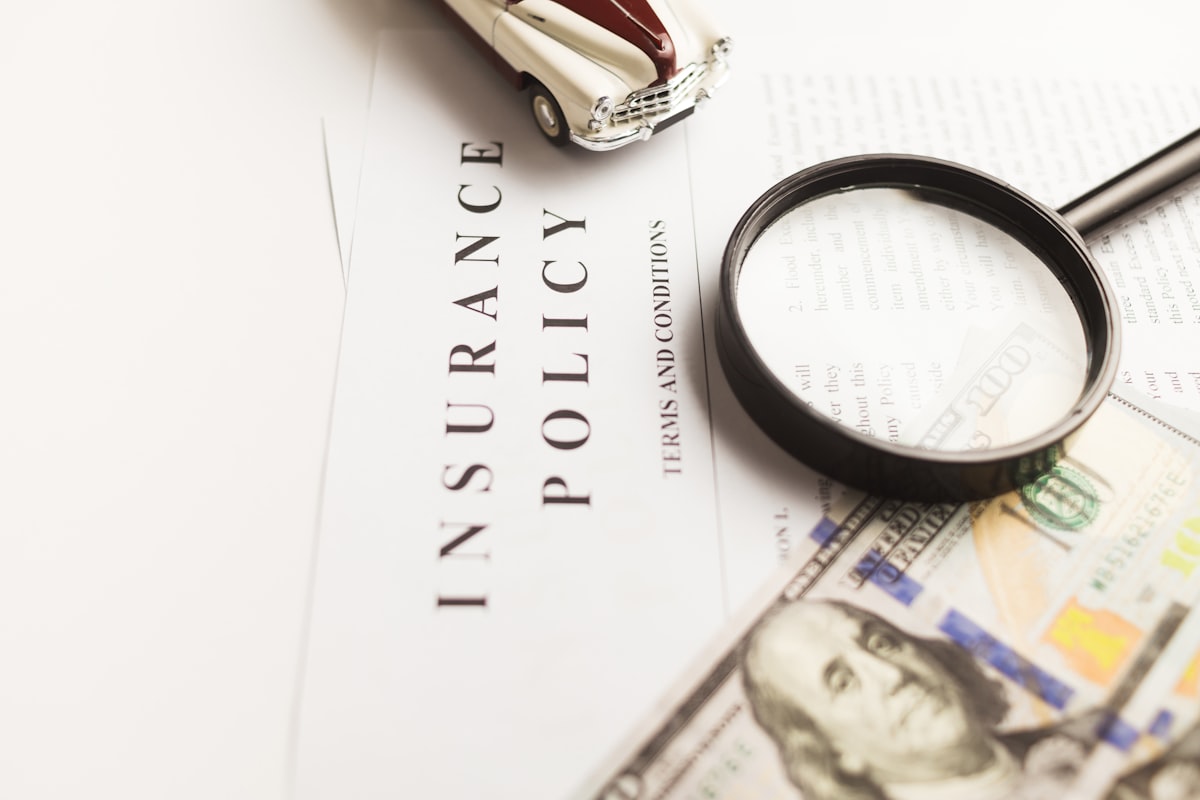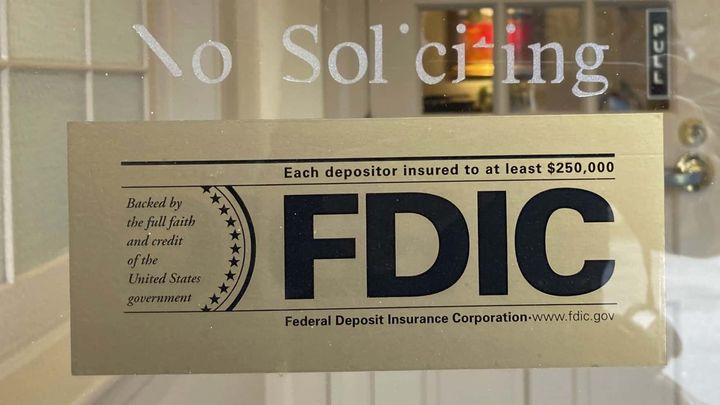Insurance - Types, Use, Risk and Coverage
Insurance is a complex industry. Different insurances are used differently. Personal insurance differs greatly. There are many ways to overpay or underpay for insurance, depending on what you insure and why. Americans have insurance. It's cultural and economic.

One of the most intricate and multifaceted sectors of the economy is insurance. There are numerous insurance options, and each one has a unique purpose. The cost of insurance varies greatly from person to person. There are several ways to pay too much for your coverage or perhaps not get adequate coverage, depending on what you are insuring and why.
In the US, insurance permeates every aspect of daily life. It is a component of our economy and culture. Generally speaking, if you don't have adequate insurance for something, you could find yourself in a considerably worse situation than you otherwise would have. The use of each of the five forms of insurance is described below.
What is Insurance?
A financial instrument called insurance offers protection against monetary damages or losses. It functions by giving an insurance company the risks of an individual or organization in exchange for a premium.
If the insured person or organization suffers a loss or injury that is covered by the insurance policy, the insurance company then agrees to pay out a specific sum of money, known as a claim. The conditions of the policy and the nature of the loss or damage that has occurred are often taken into account when determining the claim's amount.
Insurance can be obtained for a number of reasons, including preventing property damage, paying for medical costs, and supporting surviving family members financially in the event of a death. It is a crucial tool for controlling financial risk and can give assurance in the face of unforeseen circumstances.
Photo by Natalya Zaritskaya / Unsplash
Types of Insurance
There are several types of insurance that individuals and businesses can use to protect themselves from various risks. Most common types of insurance and the risks they cover -
Health Insurance
Health insurance is used to cover the cost of medical expenses, including doctor visits, hospital stays, and prescription medications. It can also cover preventative care and routine check-ups. This type of insurance is particularly important for managing the financial risks associated with serious or chronic medical conditions.
Life Insurance
Life insurance provides financial support to beneficiaries in the event of the policyholder's death. It can be used to cover funeral expenses, outstanding debts, and other expenses. Life insurance is important for people who have dependents who would be financially impacted by their death.
Auto Insurance
Auto insurance is used to cover the cost of damage to vehicles in the event of an accident or theft. It can also cover liability for damage or injury to other parties in the event of an accident. This type of insurance is required by law in most jurisdictions.
Homeowner's Insurance
Homeowner's insurance is used to cover the cost of damage to homes and their contents. It can also cover liability for damage or injury to other parties on the property. This type of insurance is particularly important for managing the financial risks associated with natural disasters, theft, and other unexpected events.
Business Insurance
Business insurance is used to cover the cost of various risks associated with running a business. This can include liability for damage or injury to others, property damage, and other risks. This type of insurance is particularly important for managing the financial risks associated with unexpected events that could impact the business's operations or reputation.
It's important to carefully consider the risks that you face in your personal or professional life and to choose the types of insurance that will provide the most comprehensive coverage. Insurance can help you manage the financial risks associated with unexpected events and protect yourself and your assets from damage or loss.

Health Insurance - What to look for?
Below are some of the risks that health insurance can help to manage, and what to look for when selecting a health insurance policy.
High Medical Expenses
Health insurance can help to cover the cost of medical expenses, including doctor visits, hospital stays, and prescription medications. When selecting a health insurance policy, it's important to consider the amount of the premium, the deductible, and the co-payments to ensure that the policy provides adequate coverage at an affordable cost.
Chronic or Serious Medical Conditions
Chronic or serious medical conditions can be expensive to manage, and health insurance can help to cover the cost of medical treatments and procedures. When selecting a health insurance policy, it's important to consider the coverage provided for pre-existing conditions and the lifetime limit on benefits.
Photo by Markus Frieauff / Unsplash
Unexpected Medical Emergencies
Medical emergencies can occur unexpectedly and can be very expensive to manage. When selecting a health insurance policy, it's important to consider the coverage provided for emergency services, including ambulance transportation and emergency room visits.
Prescription Medications
Prescription medications can be expensive, particularly for people with chronic or serious medical conditions. When selecting a health insurance policy, it's important to consider the coverage provided for prescription medications and any limitations or exclusions.
Mental Health Services
Mental health services are an important aspect of overall health and wellness, but can be expensive to manage. When selecting a health insurance policy, it's important to consider the coverage provided for mental health services, including therapy and counseling.
Keep a good health through exercise and good eating habits.
Life Insurance - What to look for?
Life insurance is a financial product that provides a death benefit to beneficiaries in the event of the policyholder's death. Below are some of the key risks to consider when purchasing life insurance and what to look for in a policy:
Coverage Amount
It's important to choose a coverage amount that is sufficient to meet the needs of your beneficiaries. This may include covering outstanding debts, funeral expenses, and other expenses.
Premiums
Life insurance premiums can vary depending on the policy and the insurer. It's important to choose a policy with premiums that are affordable and that fit within your budget.
Policy Terms
Life insurance policies can have varying terms, such as the length of the coverage period, whether the premiums are fixed or variable, and whether the policy includes any additional benefits or riders. It's important to carefully review the terms of the policy and choose one that meets your needs.
Photo by name_ gravity / Unsplash
Insurer Ratings
It's important to choose an insurer with a strong financial rating to ensure that the insurer will be able to pay out the death benefit in the event of a claim. Look for insurers with high ratings from independent ratings agencies.
Underwriting Requirements
Life insurance policies typically require a medical exam and underwriting process. It's important to choose a policy that has underwriting requirements that are reasonable and that you are able to meet.
Beneficiary Designation
It's important to choose a beneficiary or beneficiaries for your life insurance policy and to keep your beneficiary designation up-to-date. This can ensure that the death benefit is paid out to the intended beneficiaries.
Auto Insurance - What to look for?
When selecting auto insurance, it's important to consider the types of risks that are covered and what to look for in a policy. Some key things to consider -
Liability Coverage
Liability coverage is required by law in most jurisdictions and covers the cost of damage or injury to other parties in the event of an accident for which the insured is found to be at fault. When selecting liability coverage, it's important to consider the limits of coverage and ensure that they are sufficient to protect against potential financial losses.
Collision Coverage
Collision coverage is used to cover the cost of damage to the insured vehicle in the event of an accident. When selecting collision coverage, it's important to consider the deductible, or the amount that the insured will need to pay before the insurance company will cover the rest of the cost.
Comprehensive Coverage
Comprehensive coverage is used to cover the cost of damage to the insured vehicle in the event of incidents other than collisions, such as theft, fire, or natural disasters. When selecting comprehensive coverage, it's important to consider the deductible and ensure that it is appropriate for the insured's needs.
Uninsured/Underinsured Motorist Coverage
This type of coverage is used to protect drivers in the event that they are involved in an accident with someone who does not have sufficient insurance coverage. When selecting uninsured/underinsured motorist coverage, it's important to consider the limits of coverage and ensure that they are sufficient to protect against potential financial losses.
Discounts
Many insurance companies offer discounts for things like safe driving, multiple policies, and good grades for students. When selecting an auto insurance policy, it's important to ask about available discounts and ensure that the insured is taking advantage of all applicable discounts.
Homeowner's Insurance - What to look for?
Some of the risks that homeowner's insurance can cover and what to look for when choosing a policy -
Property Damage
Homeowner's insurance can cover the cost of repairs or replacement for damages to a home caused by events like fire, hail, or other natural disasters. When choosing a policy, it's important to look at the limits of coverage and deductibles to ensure that they align with your needs.
Personal Belongings
Homeowner's insurance can also cover the cost of replacing personal belongings, such as furniture, clothing, and electronics, that are damaged or stolen. It's important to review the limits of coverage for personal belongings and consider any additional coverage that may be necessary for expensive items like jewelry or artwork.
Photo by Tierra Mallorca / Unsplash
Liability
Homeowner's insurance can provide liability coverage in the event that someone is injured on your property or if you cause damage to someone else's property. When choosing a policy, it's important to consider the amount of liability coverage and any exclusions or limitations.
Additional Coverage
Homeowner's insurance policies can also include additional coverage for specific risks, such as floods, earthquakes, or hurricanes. It's important to carefully review the policy and consider any additional coverage that may be necessary based on your location and risk factors.
Business Insurance
Some of the risks that businesses may face and what to look for when choosing business insurance -
Property Damage
Business property insurance can help protect against damage to a business's physical property, including buildings, equipment, and inventory. It is important to carefully consider the value of the business's assets and to choose a policy that provides adequate coverage in the event of damage or loss.
Liability
Business liability insurance can help protect against claims of bodily injury, property damage, or other types of harm caused by the business or its employees. It is important to consider the nature of the business's operations and to choose a policy that provides comprehensive coverage for potential liability risks.
Photo by Álvaro Serrano / Unsplash
Employee Injuries
Workers' compensation insurance can help protect businesses from the financial costs associated with employee injuries or illnesses that occur on the job. It is important to ensure that the policy provides adequate coverage for the business's workforce and that the premiums are affordable for the business.
Business Interruption
Business interruption insurance can help protect against financial losses that occur as a result of unexpected events that interrupt normal business operations. It is important to carefully consider the potential risks faced by the business and to choose a policy that provides comprehensive coverage for these risks.
Cybersecurity
Cybersecurity insurance can help protect against losses related to data breaches and other cybersecurity risks. It is important to consider the nature of the business's operations and to choose a policy that provides adequate coverage for potential cybersecurity risks.
Umbrella Insurance - What is it & How does it help?
Umbrella insurance is a type of liability insurance that provides additional coverage beyond the limits of an individual's or business's primary insurance policies. It is designed to protect against large and unexpected losses that may exceed the limits of other insurance policies.
Some risks that can be covered by an umbrella insurance policy:
- Personal Injury: An umbrella policy can provide coverage for damages resulting from claims of libel, slander, or other personal injury claims.
- Property Damage: An umbrella policy can provide coverage for damage to another person's property, such as a car or home.
- Bodily Injury: An umbrella policy can provide coverage for medical expenses, lost wages, and other damages resulting from injury to another person.
- Legal Expenses: An umbrella policy can provide coverage for legal expenses, such as court costs and attorney fees.
When looking for an umbrella insurance policy, some things you should consider:
- Coverage Limits: Look for an umbrella policy that provides adequate coverage for your needs. Coverage limits typically range from $1 million to $10 million.
- Deductibles: Consider the deductible for the policy. A higher deductible can reduce the cost of the policy, but may also increase the out-of-pocket cost in the event of a claim.
- Exclusions: Be aware of any exclusions that may apply to the policy. Some policies may exclude coverage for certain types of risks, such as intentional acts or business-related claims.
- Cost: Compare the cost of different policies to find one that provides the coverage you need at a price you can afford.
In conclusion, umbrella insurance can offer essential protection against unforeseen losses and ought to be taken into consideration by anyone looking to better manage their financial risks.
Photo by Edu Lauton / Unsplash









